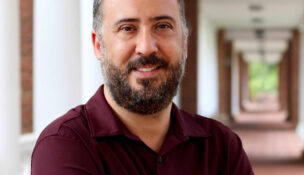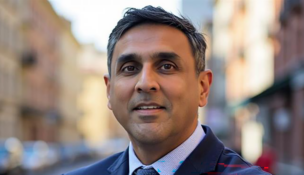Group analyzing state spending on young children
A group advocating more emphasis on early childhood education in Virginia is sifting through the state budget to determine how money is spent on young children.
The budget analysis by the Virginia Early Childhood Education Foundation is intended to determine how well the commonwealth is preparing the workforce of the future.
Speaking at a Richmond luncheon sponsored by the foundation and the Virginia Chamber of Commerce, Paul Koonce, CEO of Energy Infrastructure Group and president of Dominion Virginia Power, said the study so far shows that $1.4 billion in the budget is spent on programs for children from birth to age 5. Nearly 65 percent of that total was spent on health-related programs while 9 percent involved early childhood care and education.
“To be efficient and effective, agencies need a better understanding of what each is doing to serve children and their families, and this budget analysis is a solid start down that path,” said Koonce, a member of the foundation's board of directors.
Koonce acknowledged that “one year of pre-K is not going to inoculate a child from challenges down the road — especially if that year of pre-K is not a high quality experience, as many in my home state of Tennessee learned recently.”
He was alluding to a Vanderbilt University study of Tennessee’s state-funded Voluntary Pre-K program serving 18,000 of the state’s poorest children. The study compared children who attended pre-K with those that did not. Although the children in pre-K were better prepared for kindergarten, they were underperforming those who didn’t have pre-K by the end of the second grade.
Critics have pounced on the study as evidence that pre-K spending can be wasteful..
Koonce said the Vanderbilt study does not mean that Virginia should stop making investments in early childhood education. “However, those investments need to be in high-quality programs — like home visiting and children and pre-K — programs that have accountability and performance measures in place.”
He said the foundation is pushing for “strategic investments,” including competitive grants and professional development programs.
Koonce’s points were echoed in a speech prepared by Jeffrey Lacker, president of the Federal Reserve Bank of Richmond, for the same meeting. Lacker, however, did not attend because of illness, so the speech was read by John Weinberg, his special adviser, who also is a member of the foundation's board of directors..
While the lessons of the Tennessee study are still be sorted out, the speech said, “we do know that, within other large scale programs such as Head Start, more intensive interventions such as full-day service and frequent home visits are associated with better outcomes. This level of intensity would be costly to sustain in large-scale programs, and so it follows that there must be a trade-off between the quality of the intervention and the number of children that it reaches.”
With limited state budgets, “a case can be made for targeting resources to those for whom outcomes would change the most. There is widespread agreement in the academic literature that disadvantaged students (for example, those coming from families with low incomes or parental education) experience the greatest improvement in outcomes from early childhood interventions,” according to Lacker’s prepared remarks.
(The speech included no reference to the next meeting, Oct. 27-28, of the Federal Reserve’s rate-setting Federal Open Market Committee on which Lacker is a voting member. He dissented at the September meeting at which the committee decided to leave interest rates unchanged. In a Richmond speech before that meeting, Lacker had made a case for increasing interest rates for the first time since 2006.)
Virginia already has shown some progress in improving school readiness, Koonce said. Several years ago, the foundation reported that the cost to the commonwealth of children repeating early grades was $78 million. That cost recently was re-estimated at $62 million.
e


















